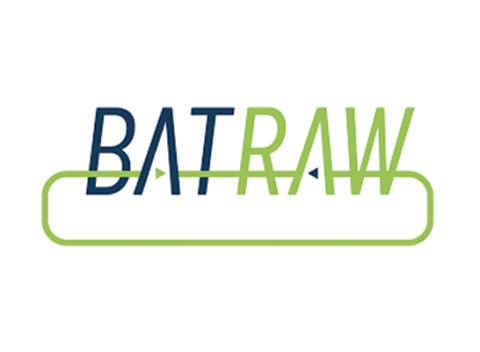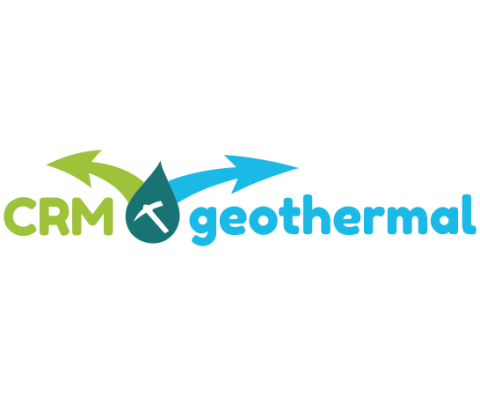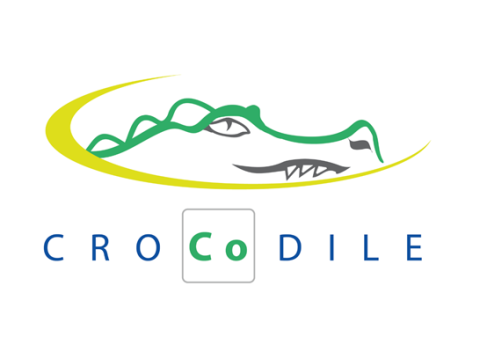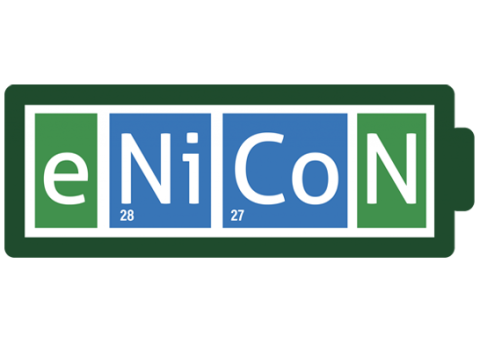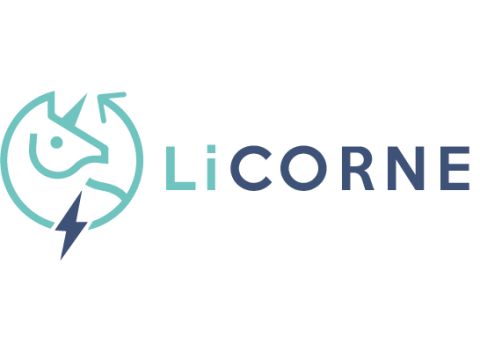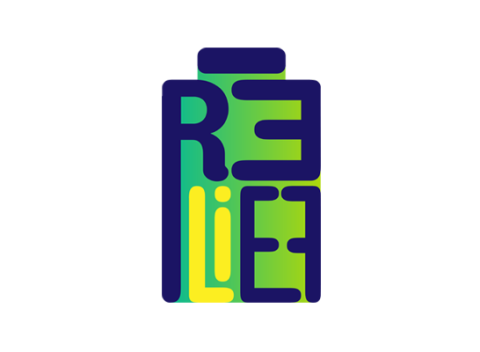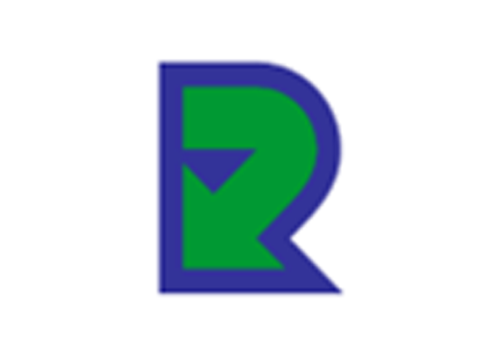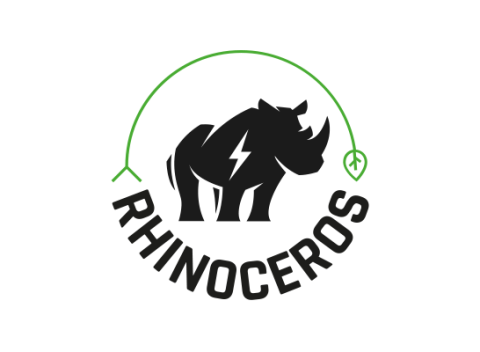Cluster Hub for production of raw materials for batteries from European resources
METALLICO is part of the Cluster Hub “Production of raw materials for batteries from European resources”. The Cluster Hub is a knowledge exchange ecosystem where partners involved in different European projects can “prototype” ideas in reality. The platform facilitates collaboration among research institutes, industry and innovation stakeholders driving the recycling of batteries and the production of raw materials for battery applications from primary and secondary resources available in Europe.
Learn more about our partner projects and make sure to also visit their interesting websites!
BATRAW main objective is to develop and demonstrate two innovative pilot systems for sustainable recycling and end of life management of EV batteries, domestic batteries, and battery scraps contributing to the generation of secondary streams of strategically important CRMs and battery RMs. The first pilot will deliver innovative technologies and processes for dismantling of battery packs achieving recovery of 95% of battery pack components and separating waste streams including cells and modules by semi-automated processes for recycling. BATRAW’s second pilot will scale and demonstrate efficient pre-treatment and continuous hydrometallurgical recycling of battery cells and modules including innovative steps for C-graphite, Al and Cu separation from black mass and Mn extraction, achieving a recovery of the full range of battery RMs (Co, Ni, Mn, Li, C-graphite, Al and Cu) at selectivity of 90-98%. Innovations wil be scaled and demonstrated in a pilot systems with recycling capacity of 1 ton lithium-ion battery (LIB) packs dismantled per shift (8 hours) and treat 300 kg BM per day. BATRAW outcomes are of strategic importance within the prospects of the exponentially growing EU battery market and reducing EU import dependency of CRMs. The project will further promote the overall sustainability and circularity of battery products and raw materials by developing new procedures for battery repair and reuse, enabling faster diagnostics and conversion of EV packs into second life batteries, delivering eco-design guidelines for battery manufacturing, demonstrating blockchain platform for raw material tracking and supply chain transparency (Battery Passport) and delivering guidelines for safe transports and handling of battery waste. The project aims to maximize market uptake and impact through ambitious C&D&E plan including circular business models, innovations workshops, dissemination in EU platforms, policy briefs and other strategies to reach markets and stakeholders.
Although CRM are known to occur in geothermal fluids, there are still many uncertainties concerning their occurrence in different geological settings and the sustainability of their extraction. The actual extraction process is also a major challenge requiring technology development.
Hence, the CRM-geothermal project has the following objectives:
• Establish an overview of the potential for raw materials in geothermal fluids for a large range of CRM elements across the EU and third countries
• Determine the source of selected CRM, their mobility and potential for sustained extraction from geothermal brines
• Develop and optimise innovative extraction technologies for selected CRM from geothermal brines that can form a business case for new EU SMEs
• Assess the environmental-social-economic viability, create transparent and traceable value chains, and foster ethical sourcing of CRM
• Demonstrate at a pilot site the extraction technology for at least one CRM in field at the scale of a miniplant and evaluate the total sustainability of system
The CROCODILE project will showcase innovative metallurgical systems based on advanced pyro-, hydro-, bio-, iono- and electrometallurgy technologies for the recovery of cobalt and the production of cobalt metal and upstream products from a wide variety of secondary and primary European resources. CROCODILE will demonstrate the synergetic approaches and the integration of the innovative metallurgical systems within existing recovery processes of cobalt from primary and secondary sources at different locations in Europe, to enhance their efficiency, improve their economic and environmental values, and will provide a zero-waste strategy for important waste streams rich in cobalt such as batteries. Additionally, CROCODILE will produce a first of a kind economically and environmentally viable mobile commercial metallurgical system based on advanced hydrometallurgical and electrochemical technologies able to produce cobalt metal from black mass containing cobalt from different sources of waste streams such as spent batteries and catalysts. The new established value chain in this project will bring together for the first time major players who have the potential of supplying 10,000 ton of cobalt annually in the mid-term range from European resources, corresponding to about 65% of the current overall EU industrial demand. Therefore, the project will reduce drastically the very high supply risk of cobalt for Europe, provide SMEs with novel business opportunities, and consolidate the business of large refineries with economically and environmentally friendly technologies and decouple their business from currently unstable supply of feedstocks.
The cobalt (Co) and nickel (Ni) demand is expected to be about 20 times higher in 2040 than in 2020. Given that Europe plays only a minor role in the global Ni/Co supply chains, which are concentrated in the DRC, Indonesia and China, we face a serious problem in securing a reliable, affordable and sustainable supply of battery-grade Ni/Co, vital for Europe’s aims to be climate-neutral by 2050. In view of a “domestic and foreign sourcing” procurement model, ENICON exploits the potential of (low-grade) Ni/Co resources within Europe – i.e. sulphidic Ni/Co ores and derived Ni/Co-bearing pyrite and silicate tailings, and limonitic/saprolitic laterite Ni(/Co) ores – while improving and developing the Ni/Co-refining capacity that can process imported ores, concentrates and intermediates. ENICON comprises both major improvements to existing Ni/Co metallurgical unit operations in Europe as well as the development of a new HCl-based route for both Ni/Co sulphide concentrates and laterites. ENICON’s HCl-route dispenses with the old-school hydro-approach of continuously precipitating and redissolving metals that requires lots of chemicals and creates problematic waste streams. The HCl-based route can be extended to the downstream processing of FeNi (Class-II Ni) obtained from laterites; (2) Mixed (Ni/Co) Sulphide/Hydroxide Precipitate (MSP/MHP) from the bioleaching of Co-rich pyrite tailings; and Ni/Co-containing silicate tailings. ENICON targets a “forensic geometallurgy” protocol, making it possible to identify and mitigate the mineralogical and textural reasons for processing losses along existing and new flowsheets. To make the transition to (near) zero-waste processing and to further reduce CO2-footprints, ENICON develops enhanced mineral-matrix valorisation processes. The outputs from ENICON’s group of European Ni/Co mining, processing and refining companies will all be benchmarked in terms of positive environmental and techno-economic impacts against current methods.
By upscaling and integrating results from earlier projects, EXCEED’s 15 partners develop a new mining paradigm, i.e. zero-waste, multi-metal/mineral mining. This will be combined with sustainable mineral processing to provide us with additional critical raw materials (CRMs: rare earths, Nb, Ta, W, Be) and industrial minerals (quartz, feldspar and micas), coming from 4 lithium mines (as case studies) in Finland (Keliber), Portugal (Savannah), France (Imerys) and the UK (Imerys).
The project adopts a mineral-centric, integrated methodology based on an innovative predictive and forensic geometallurgy, supported by enhanced in-line characterisation tools and the development of digital twins. EXCEED develops, upscales and demonstrates cost-effective, sustainable and responsible extraction routes for recovering CRMs and industrial minerals (the latter for use as low-carbon ceramics and cements), as by-products from the 4 Li-bearing hard-rock ores.
EXCEED’s long-term impact includes the replication of the EXCEED solutions to the other 23 European pegmatite and Rare-Metal Granite deposits, thus boosting domestic CRM production (up to 21.7 Mt Li2O & 1.5 Mt of other CRMs), in a way that gains public support by respecting the environment and creating local jobs.
The negative environmental impacts result from the linear ‘take, make, dispose’ and dominant economic models of our time, traditionally adopted by decision-making of main stakeholders around mobility are changing thank to EV’s irruption, but Lithium-Ion Batteries (LIBs) are not yet green enough to reduce mobility footprint to lowest levels. Thus, recycling has to be developed to achieve higher efficiencies and recovery rates to reintroduce Critical Raw Materials from End-of-Life (EOL) LIBs. Recycling technology is still at the lab-scale due to the complex structure of EOL LIBs. Currently, pyro-metallurgy is the most applied method in the industry. Although this process does not need pre-treatment, its energy-wasting, the equipment investment is large and it will cause serious pollution. In response to these problems, many companies have developed hydrometallurgical processes, that can recover Li and Al with low energy consumption. However, it requires pre-treatment, leaching, purification and other steps, and it could be a long way. FREE4LIB aims to develop at TRL 5-6 technologies to achieve 6 new sustainable and efficient processes to recycle EOL LIBs (dismantling, pre-treatment and 4 materials recovery processes) delivering innovative recycling solutions to reach highly efficient materials recovery (metal oxides, metals and polymers) improving the supply of secondary resources at EU level. FREE4LIB also will deliver 3 processes aiming at metals and polymers re-using and electrode synthesis for re-manufacturing new LIBs, and it will study options to harness non-reusable elements. It will also deliver a Battery Passport (BP) methodology to improve processes traceability. Besides, 2 Open Platforms will be deployed: BP and Data-driven models for the process’s optimisation. At end, to validate and spread FREE4LIB: new LIBs will be assembled on battery packs and engagement activities with citizens, policymakers and battery stakeholder will be carried out, respectively.
LiCORNE aims to establish the first-ever Li supply chain in Europe. The goal is to increase the European Li processing and refining capacity for producing battery-grade chemicals from ores, brines, tailings and off-specification battery cathode materials. This supply chain encompasses five large primary resource owners (including one of the world leader in Li production) having resources of ~7.8 Mt lithium carbonate equivalent (LCE), in which 2.7 Mt LCE are located in Europe. The European primary resources that are considered in LiCORNE would be enough to supply ~3000 GWh of batteries (i.e. ~10 years to the expected 300 GWh/year production capacity in Europe by 2030). Additionally, the value chain includes a cathode manufacturer who will be able to reuse valuable Li, Co and Ni that will be recycled from waste cathode material, and one producer and distributor of battery-grade Li-chemicals. LiCORNE will investigate 14 different groundbreaking technologies that have been selected for their potential to operate at low CAPEX and OPEX, low carbon footprint, flexibility and industrial scalability. Those technologies are led by 8 top R&D centers in Europe to tackle the main bottlenecks in Li processing and recovery. During 2.5 years, R&D partners will investigate those technologies and bring their TRL from 2 to 4. After this phase, and guided by LCA and LCCA, the most promising technologies will be selected for upscaling to TRL5. During this phase a prototype system will be constructed and demonstrated at TRL5 to produce ~1 kg of battery-grade Li-chemicals (i.e. LiOH∙H2O, Li2CO3 or Li-metal) from ores, brines, tailings and waste cathode material, with the recycling of Co and Ni from the latter. Results will be communicated and disseminated to a wide range of stakeholders and a first business model for a full and optimized Li supply chain in Europe will be established based on the results of the project and cost of Li produced.
RAWMINA will develop and demonstrate an innovative pilot system for the clean and sustainable production of non-energy, non-agricultural raw materials (RMs) in the EU from Mine Waste (MW) resources. RAWMINA will implement and standardize an innovative energy, water- and cost-effective continuous pilot process for producing RMs. It will integrate novel bio-leaching and nano-based materials for Sb, Co, Ge and W selective recovery from MW from “unexploited/underexploited metal containing materials”. RAWMINA will improve EU competitiveness and create added value in RMs processing, refining and equipment manufacturing by developing a new circular business model as an alternative to traditional linear mining economy. RAWMINA will integrate different technologies that will be demonstrated (TRL7) with MW of diverse geological compositions from EU and non-EU mines demonstrating flexibility in processing of the innovative pilot system. The project will perform a techno-economic and sustainability assessment throughout the entire life cycle considering health, safety, socio-economic and environmental impacts; maximizing water/energy efficiency and waste/wastewater reduction. IP, exploitation and business plans will be developed ensuring market penetration, technology export and first exploitation plan. RAWMINA will transform MW into a resource, enabling marketable products recovery to be used in batteries, flame retardants, optical fibers and industrial tools. The project will create a CRM Recovery Helix to maximise clustering and will interact with local communities to gain EU citizens trust. It will increase resource efficiency and sustainability of EU industry, contributing to decrease EU CRM import dependency. Apart from sheltering the EU from possible shortages in CRM supply, the project will contribute to reduce production costs and environmental impacts, contributing to the objectives of the European Innovation Partnership on RMs.
Current recycling technology is focused on recovering Li from battery scrap, while hardly much focus and technological development is going towards other Li sources. Hence the aim is to recover Li from potential secondary sources, in order to reduce unrecovered Li from its waste generation, which is estimated to be approx. 27.33% of the current global Li production. RELiEF proposes an integrated recycling facility for Li from secondary raw material sources with continuous processing to produce battery materials. Li wastes will be reduced by more than 70%, which will instead be recycled into high value battery-grade material. The results of the integrated and continuous process up to battery precursor recovery will be demonstrated at TRL 5 and battery active material closed-loop process will be demonstrated at TRL4 with a 1.5 – 2.5 kg/week output of battery active materials and a new business model will be developed for the materials acquisition and processing, taking into account environmental and social sustainability. The expected results will contribute to decreasing the dependency of the EU on imported battery chemicals and raw materials. RELiEF will greatly strengthen the EU’s competitiveness in the battery storage value chain.
The RELiEF consortium consists of 12 partners, six of which are SMEs (ABEE, EXT, EURICE, IST, PEG, TC), four are non-profit RTOs (IMNR, INEGI, ZSW, NOVA) and further two are universities (LUT, ULB) and one associated industrial partner (LANX), Thus, it a very high amount of industry involvement, entirely in the form of innovative SMEs covering the technological and also the impact maximization related aspects of the project; a perfect combination of basic research methodologies, chemical process and analysis capabilities, technology development in an industrial environment and strong ties to the recycling and battery industry and policymaking entities inside the EU.
In the context of increasing global battery use, developing sustainable, safe and efficient processes is a tangible issue to further enhance circular economy and strategic autonomy of the European Li-ion batteries value chain, in line with the battery partnership’s objectives launched under Horizon Europe.
RESPECT main objective is to develop a global process encompassing a process-chain flexible enough to treat all kind of batteries in closed loop, considering the variability of Li-ion batteries chemistries (NMC, LFP, NCA, LMO) , applications (EV and ESS) and states (aged, damaged, EoL, production scraps) up to date not covered by any process on the State of the Art. RESPECT addresses two recycling routes: full hydrometallurgy and direct recycling and an improved Life Cycle Assessment of each recycling segment to lower emissions and reduce secondary pollution, safety and health risks.
RESPECT will aim to design and validate the recycling processes up to pilot scale to recovering the highest amount of resources, including CRMs and active materials present in the batteries to closing the loop by their reuse in cathode and anode materials for new batteries. Socio-economic, as well as sustainability aspects will be covered throughout the project. To ensure a successful project implementation, knowledge sharing on Li-ion battery green recycling processes will be fostered, based on the engagement with relevant international stakeholders and experts through the advisory board.
Based on a solid and interdisciplinary consortium of partners covering the whole value chain, RESPECT seeks high recovery rates (for Li, Mn, Co, Ni or graphite) with low environmental impact and strong energy savings, in accordance with the European Green Deal and the proposed Battery Regulation.
Rhinoceros will develop, improve and demonstrate, in an industrially relevant environment, an economically and environmentally viable route for re-using, re-purposing, re-conditioning and recycling of EoL EV and stationary batteries. Rhinoceros will first develop a smart sorting and dismantling system enabling the automated classification and dismantling of LIBs and the reassembly of still working modules in new repurposed batteries for second life applications such as batteries for energy storage systems. When direct reuse and repurpose of batteries is not possible, a circular recycling route of all the materials present in LIBs (e.g. metals, graphite, fluorinated compounds and polymers, active materials) will be followed to close the materials loop. This route is based on a set of cost efficient, flexible and environmentally friendly routes targeting the pre-treatment, refining and the recovery of materials. Through product qualification by industrial end-users, Rhinoceros will demonstrate the direct production of high performances cathodic and anodic materials and other raw materials at competitive costs from battery recycling. The achievements will bring Europe to an increased independence level from foreigner manufacturers and raw materials suppliers.

.png)
